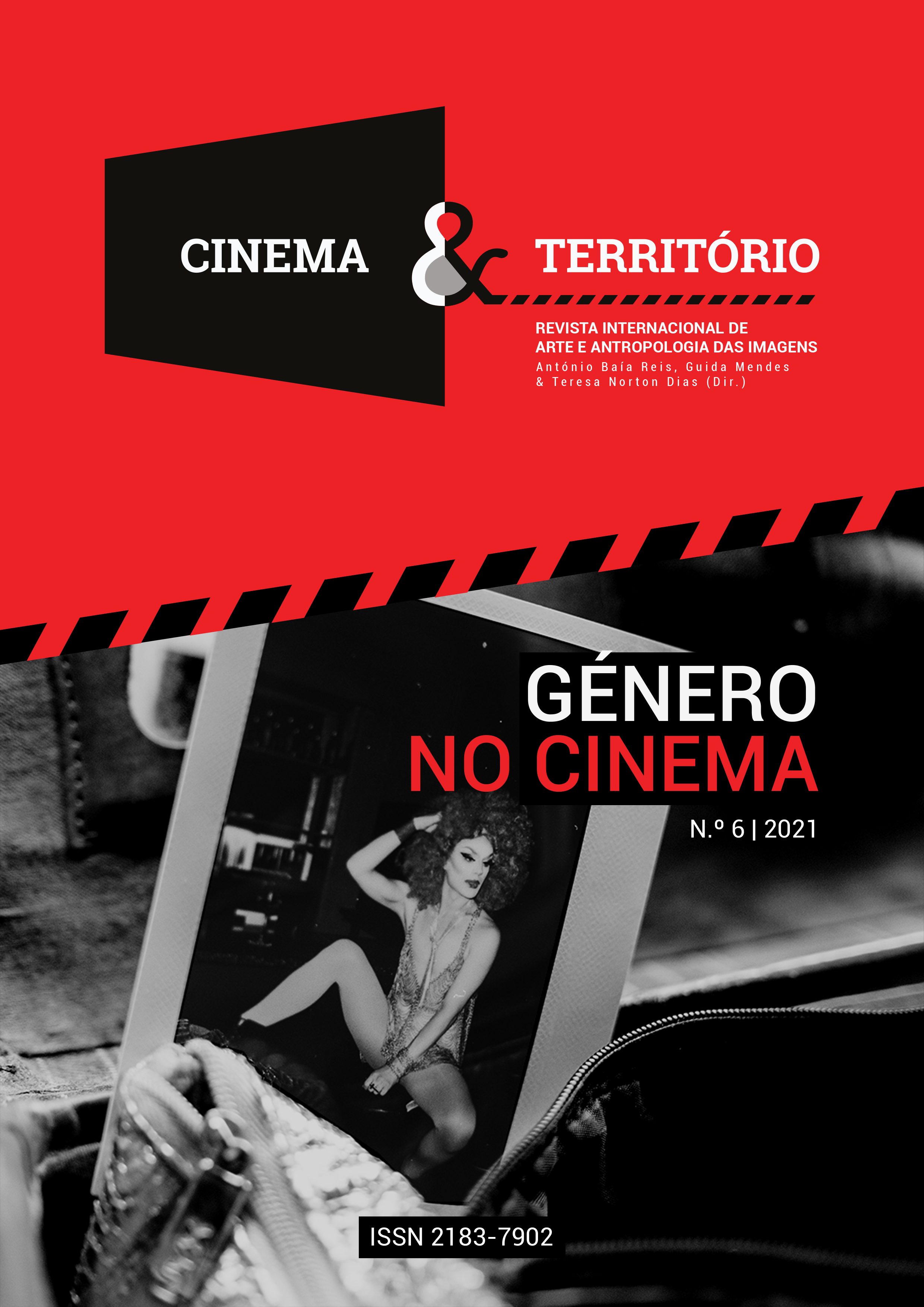Lesbian subjectivities in contemporary cinema
DOI:
https://doi.org/10.34640/universidademadeira2021jereminsantosKeywords:
gender and cinema, feminist theory, lesbian representation, stereotypesAbstract
The objective of the article is to analyse two films centred on the history of lesbian women in different historical, economic, and social contexts: the Kenyan Rafiki (2018) and the American the world to come (2020). Both movies are viewed from the perspective of gender theory and have as background the documentary Celluloid Closet (1995), in order to analyse possible aesthetic and narrative changes in the subjectivity of women in contemporary cinema. We aim to make reflections from the changes perceived in the treatment of characters who historically were conceived as sexual perverts or framed through sexist-patriarchal stereotypes. We seek to understand the different ways in which the prominence of women directors, producers, writers, and spectators, by vocalizing new subjectivities in contemporary audiovisual, act to model new scenarios of representativity and representation. The issue is no longer about to break with ideals centred on male ideals, but the effort to create narratives that manage to speak from and through the most different views of the world, creating conditions for the representation of other social subjects to materialize narratives.
References
Affleck, C., Baillou, M., Hinojosa, D. & Lader, W. (Produtores) & Fastvold. M. (Realizadora). (2020). The World to Come. [Streaming] Prime Video – Amazon. Nova Iorque: Bleecker Street; Bucareste: Arsia Production; Paris: Charades; Moscou: Hype Film; London: Ingenious Media; Nova Iorque: Killer Films; Nova Iorque: M.Y.R.A.
Entertainment; Wokingham: Panasper Films; Dallas: Sailor Bear; Pasadena: Sea Change Media; Culver City: Sony Pictures Worldwide Acquisitions (SPWA); Nova Iorque: Yellow Bear Film.
Bacon, R. (2020). “We Truly Love Our Country” - An Interview with ‘Rafiki’ Director Wanuri Kahiu. Disponível em http://redmondbacon.co.uk/filter/Much-Ado-AboutCinema/We-Truly-Love-Our-Country-An-Interview-with-Rafiki-Director-Wanuri [10.04.2021].
Carneiro, A. S. (2005). A construção do outro como não-ser como fundamento do ser. São Paulo: Universidade de São Paulo.
De Lauretis, T. (1985). Aesthetic and feminist theory: Rethinking women's cinema. New German Critique, (34), 154-175.
De Lauretis, T. (1988). Sexual indifference and lesbian representation. Theatre Journal, 40 (2), 155-177.
De Lauretis, T. (2019). A tecnologia de gênero. H. B. de Hollanda (Dir.). Pensamento Feminista: conceitos fundamentais (pp.121-155). Rio de Janeiro: Bazar do Tempo.
Doane, M. A. (1982). Film and the masquerade: Theorising the female spectator. Screen, 23 (3-4), 74-88.
Epstein, R., Friedman, J., Nevins, S. & Spry, C. (Produtores) & Epstein, R., Friedman, J. (Realizadores). (1996). O outro lado de Hollywood [DVD]: Culver City: Tristar Pictures.
Frye, M. (1983). The politics of reality: Essays in feminist theory. Crossing Press.
Harding, S. (2019). A instabilidade das categorias analíticas na teoria feminista. H. B. de Hollanda (Dir.). Pensamento Feminista conceitos fundamentais. (pp.95-118). Rio de Janeiro: Bazar do Tempo.
Kallestrup, C. (2018). Lesbian film Rafiki sells out after Kenyan court lifts ban. The Sidney Morning Herald: Nairóbi. Disponível em https://www.smh.com.au/entertainment/movies/lesbian-film-rafiki-sells-out-after-kenyan-court-lifts-ban-20180924-p505k2.html [11.04.2021].
Lorde, A. (2019). Irmã outsider. São Paulo: Grupo Autêntica.
Markovitz, S. (Produtor) & Kahiu. W. (Realizadora). (2018). Rafiki. [Streaming] Prime Video – Amazon. Cape Town: Big World Cinema; Paris: MPM Film; Beirute: Schortcut Films; Oslo: Ape&Bjørn; Amesterdã: Rinkel Film; Berlim: Razor Film Produktion GmbH, Los Angeles: Tango Entertainment Stockholm International Film Festival. (2020). Face2Face with Mona Fastvold - Director of The World To Come. Disponível em http://www.youtube.com/watchv=psJ9yjRs0Y&ab_channel=StockholmInternationalFilmFestival [11.04.2021].
Wittig, M. (2019). Não se nasce mulher. H. B. de Hollanda (Dir.). Pensamento Feminista conceitos fundamentais (pp. 83-92). Rio de Janeiro: Bazar do Tempo.
Downloads
Published
How to Cite
Issue
Section
License
Copyright (c) 2021 Danusa de Oliveira Jeremin, Elisângela de Jesus Santos

This work is licensed under a Creative Commons Attribution-NonCommercial 4.0 International License.
For more information follow the link: CC Atribuição-NãoComercial 4.0








